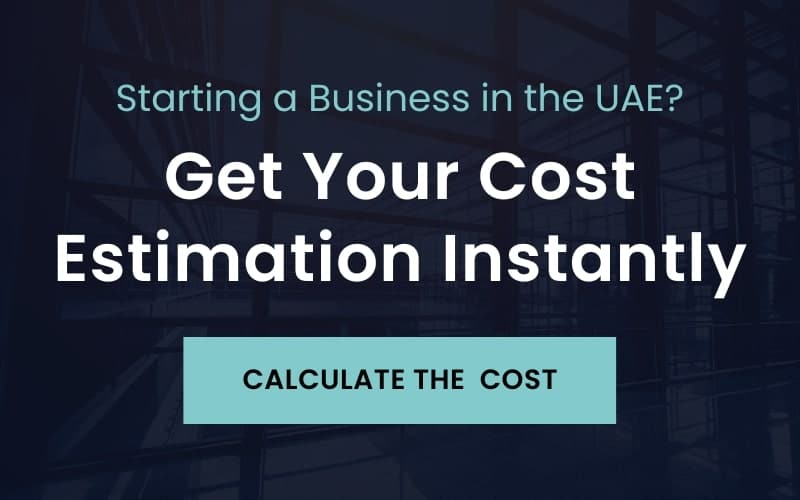News & Articles
Mainland vs Free Zone 2024: Strategic Decision Making for New Business in UAE

Establishing a new business in the United Arab Emirates (UAE) presents a unique set of opportunities and challenges, especially when weighing the options of mainland vs free zone in 2024. This decision can have far-reaching implications on your business’s operations, growth, and success in the region. In this blog, Choose UAE delves deeper into the nuances of mainland and free zone setups to help entrepreneurs make an informed and strategic choice.
Mainland vs Free Zone 2024
1. Ownership and Control
Mainland: Historically, mainland businesses required a local UAE sponsor who held a majority share. However, recent changes in the law now allow for 100% foreign ownership in many sectors. This shift is aimed at boosting foreign investment and offers greater control to international entrepreneurs. However, it’s important to note that certain activities might still require a local agent or sponsor, depending on the business type.
Free Zone: The standout feature of free zones is the provision for 100% foreign ownership without the need for a local Emirati sponsor. This autonomy is a huge draw for foreign investors, offering them complete control over their operations and profits. Each free zone is self-regulated and often tailored to specific industries, providing a supportive ecosystem for businesses.
2. Nature of Business Activities
Mainland: Mainland setups are more specific and regulated in terms of business activities. Companies in mainland areas are typically limited to operating within a specific group of related activities. For example, a license for General Trading on the mainland cannot be easily combined with a Marketing activity, and the scope of each activity is more narrowly defined. The mainland’s regulatory framework is strict about grouping and does not usually permit the crossing of completely different business activities, like combining Marketing with Interior Designing.
Free Zone: Free zone entities in the UAE, particularly in versatile zones like SPC and Meydan, offer a unique advantage for businesses focused on a broad range of activities, including exports, imports, and specialized industrial or logistic operations. Unlike mainland companies, free zones allow for a wide variety of business activities under one license, even if these activities are unrelated. For instance, a company can combine General Trading with Marketing under a single license, and in free zones like SPC and Meydan, the scope of activities like Marketing is exceptionally broad.
Furthermore, free zones facilitate ‘cross business activity,’ where businesses can integrate two or more completely different activities within their license, often without additional charges. This flexibility is ideal for businesses seeking a testbed for innovative projects or those involved in international trade.
3. Legal and Regulatory Considerations
Mainland: Businesses on the mainland are subject to federal and local government laws and regulations. This includes adherence to more stringent labor laws, registration processes, and compliance requirements. While this may seem daunting, it provides a structured and regulated environment that can be advantageous in ensuring business stability and credibility.
Free Zone: Free zones are governed by their own set of rules and regulations, often offering a more flexible and investor-friendly environment. They provide numerous incentives like tax exemptions, no currency restrictions, and ease of capital repatriation, making them attractive for foreign investors. However, businesses must operate within the confines of the specific free zone’s rules, which can be limiting in some aspects.
4. Cost Implications
Mainland: The cost of setting up on the mainland varies widely based on the business activity, location, and scale. Initial setup costs can be higher due to licensing and registration fees, but this is balanced by the unrestricted access to the UAE market. Operational costs, including rent, utilities, and labor, can also be higher on the mainland, which is a crucial factor to consider for budgeting. The cost for obtaining a license starts at approximately AED 15,000.
Free Zone: Free zones generally offer more cost-effective solutions for business setup and operation. They provide various packages that include office spaces, utilities, and administrative services at competitive rates. The cost-effectiveness of free zones is particularly appealing to startups and SMEs looking for lower overheads and initial investment. The cost for obtaining a license starts at approximately AED 5,500.
5. Scope for Expansion
Mainland: Businesses on the mainland have the flexibility to expand their operations across the UAE without geographic restrictions. This includes the ability to open multiple branches, engage in a variety of business activities, and easily adjust the business scope or activities to adapt to market changes. This flexibility is crucial for businesses with ambitious growth plans in the region.
Free Zone: Expansion within free zones can be more restricted. While free zones offer excellent facilities and support for startups and specific industry sectors, businesses looking to expand outside the confines of the zone may face challenges. This includes setting up additional branches or subsidiaries in other areas or navigating the complexities of entering the local UAE market.
6. Visa and Office Requirements
Mainland: Mainland companies in the UAE benefit from more leeway in visa quotas and office space requirements. They can obtain an unlimited number of visas for employees, based on office space size, which is ideal for businesses with large workforces. Additionally, the flexibility to choose office locations across the UAE allows for strategic positioning near customers or in central business districts.
Free Zone: Free zones in the UAE offer flexible office space requirements, allowing businesses to operate without the mandate of a physical office within the zone. However, if a business opts for office space, renting within the free zone or any business center across the UAE is permissible. This flexibility is particularly advantageous for smaller enterprises or those with limited workforce needs. In terms of visa allocation, free zones typically offer a quota of around 6 visas
How Can Choose UAE Help
Deciding between a mainland or free zone business setup in the UAE is pivotal, considering factors like your business’s nature, target market, and growth objectives. Mainland setups are great for direct local market access and flexibility, while free zones offer benefits such as 100% foreign ownership and tax exemptions, ideal for international trade-focused businesses.
Choose UAE is committed to guiding you through this decision, offering personalized advice to align with your business goals. Our experts handle all aspects of business setup, from choosing the right jurisdiction to managing legal and documentation processes, ensuring a smooth company setup.
We also provide comprehensive visa services, including application assistance and renewals. Our support extends to finding the ideal office space, whether it’s a virtual setup in a free zone or a larger mainland office, tailored to your needs.
Beyond business setup, Choose UAE offers ongoing support for operational, administrative, and regulatory needs, making us a partner in your business’s growth in the UAE’s dynamic market. With our expertise and support, you can confidently embark on your business journey, assured that all aspects of your setup, visa, and office requirements are efficiently managed.
What Makes Us Stand Out?
- Trustworthy Reputation
- Individualized Solutions
- All Around Services
- Hassle-free, Fast and Efficient
- Excellence and Professionalism
- Dedicated Support








